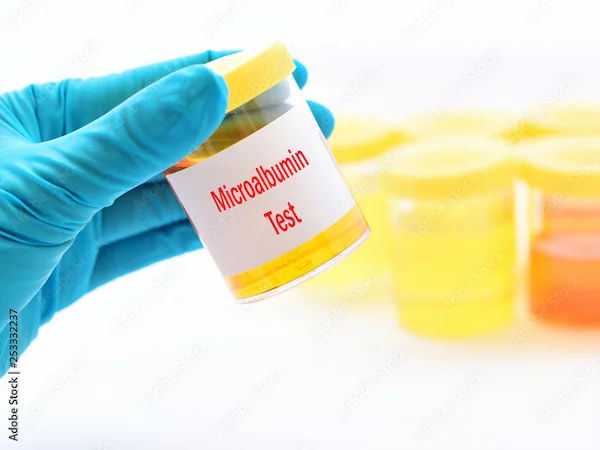How To Reduce Pus Cells In Urine?
Found pus cells in urine? Learn about potential causes and steps you can take. It's important to consult a doctor for proper diagnosis and treatment.

Written by Dr.Sonia Bhatt
Last updated on 3rd Jul, 2025

Introduction
Finding out that you have pus cells in your urine can be concerning, but the good news is that this condition is often treatable with the right care. Pus cells, also known as pyuria, usually indicate an infection or inflammation in the urinary tract. If left untreated, it can lead to discomfort and complications. However, with simple lifestyle changes, proper hygiene, and medical treatment, you can effectively reduce pus cells in urine and improve your urinary health.
What Are Pus Cells in Urine?
Pus cells are white blood cells (WBCs) that appear in the urine when there is an infection or inflammation in the urinary system. A small number of pus cells (05 per highpower field) is normal, but a higher count suggests an underlying issue, such as:
Urinary Tract Infection (UTI) – Most common cause, especially in women.
Kidney Infection (Pyelonephritis) – A more severe UTI that affects the kidneys.
Bladder Infection (Cystitis) – Inflammation of the bladder.
Sexually Transmitted Infections (STIs) – Such as gonorrhea or chlamydia.
Kidney Stones – Can cause irritation and infection.
Prostate Infection (Prostatitis) – Common in men.
Symptoms of Pus Cells in Urine
If you have an increased number of pus cells, you may experience:
Pain or burning sensation while urinating
Frequent urge to urinate
Cloudy or foulsmelling urine
Lower abdominal pain or back pain
Fever or chills (if infection spreads to kidneys)
How to Reduce Pus Cells in Urine?
Tips on how to reduce pus cells in urine:
Drink Plenty of Water: Stay well-hydrated to help flush out bacteria and dilute urine, reducing irritation.
Maintain Proper Hygiene: Practice correct wiping, urinate after intercourse, and avoid harsh genital products to prevent bacteria from entering the urinary tract.
Follow a Healthy Diet: Increase Vitamin C and probiotic intake to boost immunity and maintain healthy urinary bacteria, while avoiding bladder irritants.
Take Antibiotics (If Prescribed): Complete the full course of prescribed antibiotics to eliminate bacterial infections effectively.
Use Natural Remedies (With Caution): Consider unsweetened cranberry juice, D-mannose, or soothing herbal teas, but be mindful of their limitations.
Avoid Holding Urine for Long: Urinate promptly when needed to prevent bacterial multiplication in the bladder.
Wear Breathable Underwear: Opt for cotton underwear to improve airflow and reduce moisture that can encourage bacterial growth.
Manage Underlying Conditions: Address the root cause of pus cells by following your doctor’s treatment plan for conditions like kidney stones, diabetes, or prostate issues.
When to See a Doctor?
Consult a healthcare provider if you experience:
Persistent pain or burning while urinating
Blood in urine
High fever or back pain (signs of kidney infection)
Recurrent UTIs
Early treatment prevents complications like kidney damage.
Consult Top Endocrinologist For Pus Cells
How Apollo 24|7 Can Help
If you suspect a UTI or have recurrent pus cells in urine, Apollo 24|7 offers:
Online doctor consultations for quick diagnosis
Home lab tests to check urine infection
Prescription medications delivered to your doorstep
Book a test or consult a doctor today for personalized care!
Conclusion
Pus cells in urine are usually a sign of infection but can be managed with proper hydration, hygiene, and medical treatment. Simple lifestyle changes and timely medical care can help restore your urinary health. If symptoms persist, don’t hesitate to seek professional help for a thorough evaluation. Stay healthy and take care of your urinary system!
Consult Top Endocrinologist
Consult Top Endocrinologist For Pus Cells

Dr G Prathyusha
General Physician/ Internal Medicine Specialist
5 Years • MBBS DNB (Family medicine), CCEBDM (Diabetology), PGDGM (Geriatrics), Primary care Rheumatologist.
Bengaluru
PRESTIGE SHANTHINIKETAN - SOCIETY CLINIC, Bengaluru

Dr. Nanda N
Endocrinologist
11 Years • MBBS, MD (Paediatrics) (Gold medallist), DrNB (Endocrinology & metabolism), PDCC (Paediatric Endocrinology) (AIIMS)
Bengaluru
Apollo Medical Center, Marathahalli, Bengaluru
Dr Sumanth R
General Physician
2 Years • MBBS
Bengaluru
PRESTIGE SHANTHINIKETAN - SOCIETY CLINIC, Bengaluru

Dr Venkata Naga Sai Tribhushan Rambhatla
General Physician
3 Years • MBBS
Bengaluru
PRESTIGE SHANTHINIKETAN - SOCIETY CLINIC, Bengaluru

Dr. Amrutha G
General Physician/ Internal Medicine Specialist
10 Years • MBBS,DNB(family medicine), Diabetologist-CCEBDM,CCGDM
Bengaluru
Apollo Clinic, Sarjapur Road, Bengaluru
Consult Top Endocrinologist

Dr G Prathyusha
General Physician/ Internal Medicine Specialist
5 Years • MBBS DNB (Family medicine), CCEBDM (Diabetology), PGDGM (Geriatrics), Primary care Rheumatologist.
Bengaluru
PRESTIGE SHANTHINIKETAN - SOCIETY CLINIC, Bengaluru

Dr. Nanda N
Endocrinologist
11 Years • MBBS, MD (Paediatrics) (Gold medallist), DrNB (Endocrinology & metabolism), PDCC (Paediatric Endocrinology) (AIIMS)
Bengaluru
Apollo Medical Center, Marathahalli, Bengaluru
Dr Sumanth R
General Physician
2 Years • MBBS
Bengaluru
PRESTIGE SHANTHINIKETAN - SOCIETY CLINIC, Bengaluru

Dr Venkata Naga Sai Tribhushan Rambhatla
General Physician
3 Years • MBBS
Bengaluru
PRESTIGE SHANTHINIKETAN - SOCIETY CLINIC, Bengaluru

Dr. Amrutha G
General Physician/ Internal Medicine Specialist
10 Years • MBBS,DNB(family medicine), Diabetologist-CCEBDM,CCGDM
Bengaluru
Apollo Clinic, Sarjapur Road, Bengaluru



